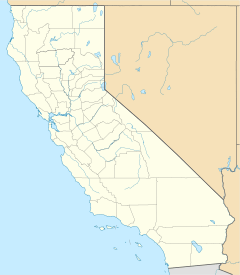Fruitland, California facts for kids
Quick facts for kids
Fruitland
|
|
|---|---|
| Country | United States |
| State | California |
| County | Humboldt County |
| Elevation | 1,004 ft (306 m) |
Fruitland (which used to be called Elk Prairie) is a small, quiet place in Humboldt County, California. It's known as an unincorporated community. This means it's a settled area that doesn't have its own local government, like a city or town does. Instead, it's governed by the county.
Fruitland is located about 6 miles (10 kilometers) east-southeast of a place called Weott. It sits at an elevation of about 1,004 feet (306 m) above sea level.
Contents
The History of Fruitland
Fruitland has an interesting past, especially concerning its first settlers and how it got its name.
Early Days and the Post Office
For many years, Fruitland had its own post office. It opened in 1890 and helped people send and receive mail until 1934. This was important because it connected the community to the outside world.
The First Settlers and Their Orchards
The very first people to settle in Fruitland were a group of immigrants from the Netherlands. They came to this area with a special plan: to plant many orchards. An orchard is a large farm where fruit trees are grown.
This project was supported by a person named David Page Cutten. He was a significant figure in the area, and a nearby place called Cutten, California, is named after him. Cutten is about 37 mi (60 km) northwest of Fruitland.
Challenges for the Fruit Market
Even though the Dutch settlers worked hard to grow fruit, they faced a big problem. Fruitland was very isolated back then. This means it was far away from other towns and cities. At that time, there weren't good ways to transport goods over long distances, especially fresh fruit that could spoil quickly.
Because of this isolation and the lack of good transportation, it became very difficult for the settlers to sell their fruit. They couldn't get their products to markets where people would buy them. Sadly, this challenge eventually led to the end of the colony's fruit business.



